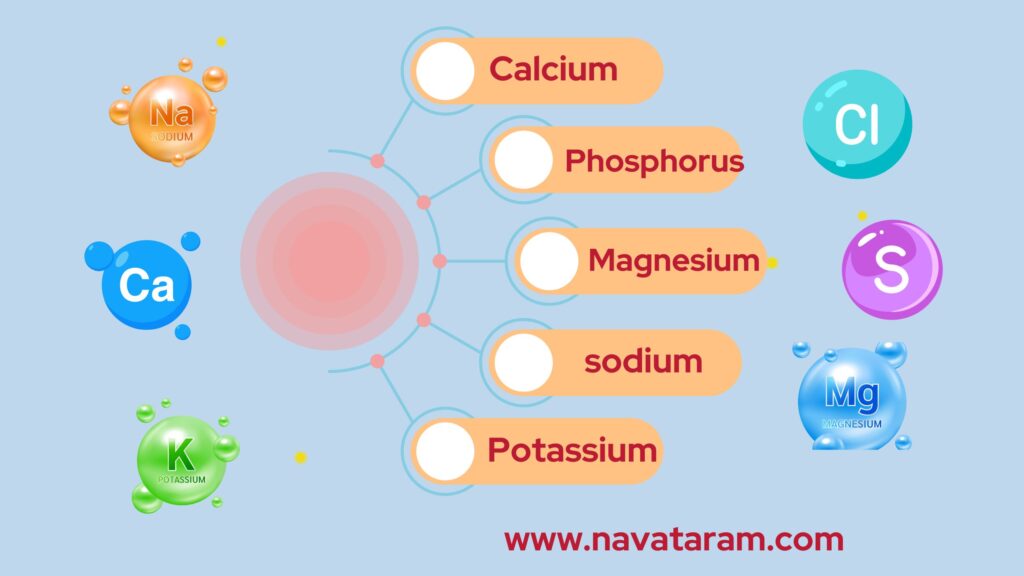Vitamins and minerals are essential nutrients that the body needs to function correctly. They play a crucial role in various physiological processes, including metabolism, immune function, and bone health. While vitamins are organic compounds obtained from plants and animals, minerals are inorganic elements sourced from the earth and water.
While the thought of rethinking your diet to include the right vitamins and minerals could be a bit overwhelming There are many alternatives for all (even those who aren’t a fan of vegetable!). Check out this article for excellent ideas and tricks to help make your food healthier and balanced for a better body!
Don’t assume you are always safe to take any vitamin you desire. If you suffer from certain medical conditions, it could be very dangerous to take certain vitamins. Be cautious when you are taking prescription medicines because certain vitamins may create negative interactions with them.
Types of Vitamins

Vitamins are divided into two broad categories by their solubility.
Fat-Soluble Vitamins:
Vitamin A :-Important for eye health, immune function, as well as the health of your skin.
Vitamin D :-Vital for the health of bones and absorption of calcium.
Vitamin E :- Acts as an antioxidant, shielding cells from harm.
Vitamin K :-Essential for blood the clotting process as well as bone health.
Water-Soluble Vitamins:
Vitamin C: Necessary for collagen production, antioxidant function and for immune function.
B Vitamins:
B1 (Thiamine): Supports the function of nerves and energy metabolism.
B2 (Riboflavin): Important for the production of energy and health of the skin.
B3 (Niacin): Involved in the repair of DNA and metabolism of energy.
B5 (Pantothenic Acid): Essential for hormone production and metabolism.
B6 (Pyridoxine): Important in the process of metabolizing proteins and for cognitive development.
B7 (Biotin): Vital in the metabolism of fats, carbohydrates and proteins.
B9 (Folate/Folic Acid): Vital for DNA synthesis as well as cell division.
B12 (Cobalamin): Necessary for the formation of red blood cells and for nerve functioning.
Types of Minerals
Minerals are classified into two categories according to the amount required by the body.
Microminerals’:
Calcium :- Vital for bone health and tooth health, muscle function, as well as nerve signaling.
Phosphorus:– Essential for the health of bones and production of energy.
Magnesium:- Participates in over 300 biochemical processes, including nerve and muscle function.
sodium:- regulates nerve and fluid function.
Potassium:- Crucial for the function of the heart as well as muscle contractions.
Chloride:- Aids in maintaining fluid balance. It is a constituent of acidity in the stomach.
Sulfur:- is Essential for protein production as well as enzyme functions

Trace Minerals:
Iron :-vital for transporting oxygen in blood and for energy production.
Zinc:- Helps with immunity as well as wound healing and DNA synthesizing.
Copper:- Essential for the iron metabolism as well as the creation of blood red cells.
Manganese:- It is involved in bone development, metabolism, and antioxidant functions.
Iodine:- Essential for the production of thyroid hormone.
Selenium:- acts as an antioxidant, and aids in thyroid function.
Fluoride:- Vital for bone health, dental hygiene and tooth strength.
Chromium:- Essential in macronutrient metabolism and the function of insulin.
Molybdenum:- essential to the function of enzymes.
Sources of Vitamins and Minerals:-
Fruits and vegetables: The best sources of vitamins C, A folate, K and as well as minerals like magnesium and potassium.
meat as well as Seafood: Provide B vitamins as well as zinc, iron and selenium.
Dairy Product: High in calcium, phosphorus, as well as vitamin D.
Whole grain: Good sources of B vitamins as well as magnesium, iron and selenium.
Nuts and seeds: Vitamin E is a source of zinc, magnesium, and selenium.
Legume: They are high in vitamin B and magnesium, iron and potassium.
Deficiency and Toxicity
deficiency :-The absence of vital minerals and vitamins can result in a myriad of health issues. For instance vitamin D deficiency can lead to osteomalacia in children as well as rickets in adults, whereas iron deficiency can cause anemia.
Toxicity:- In excess consumption of some minerals and vitamins can also cause harm. For instance, too much vitamin A may cause liver damage, while the high level of calcium may cause kidney stones.